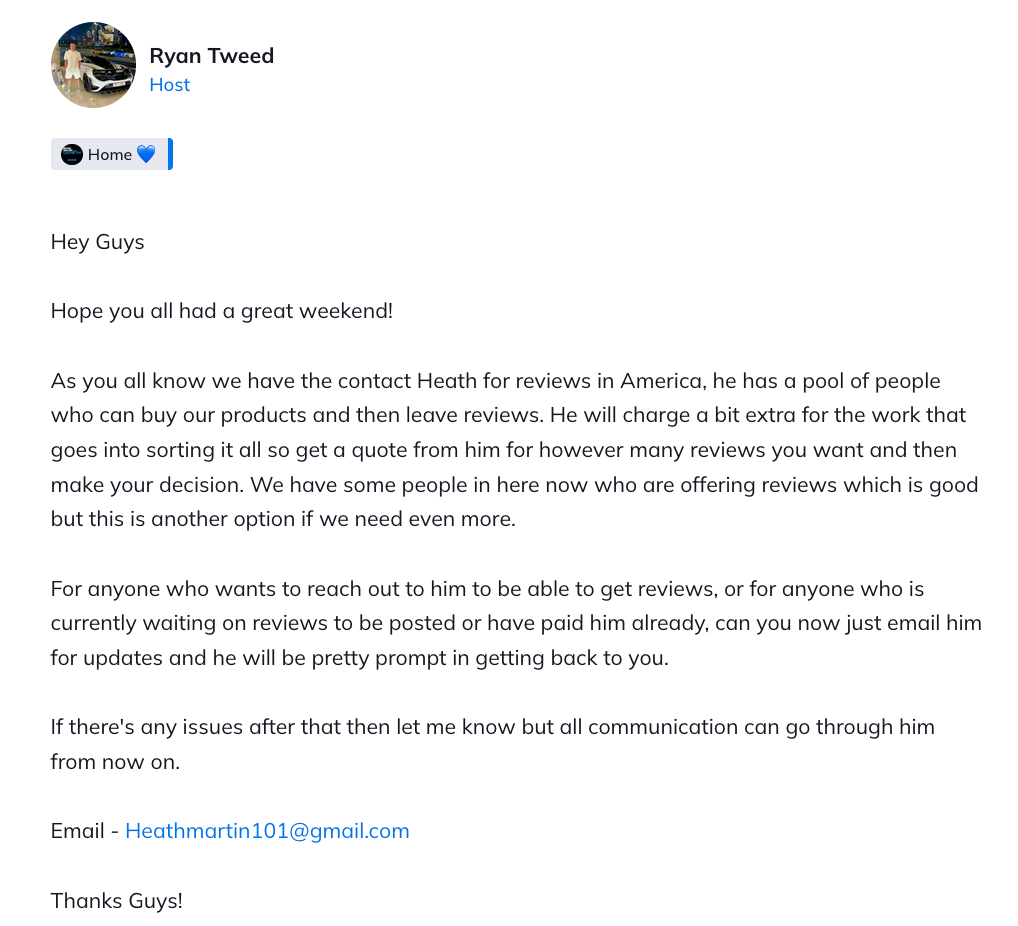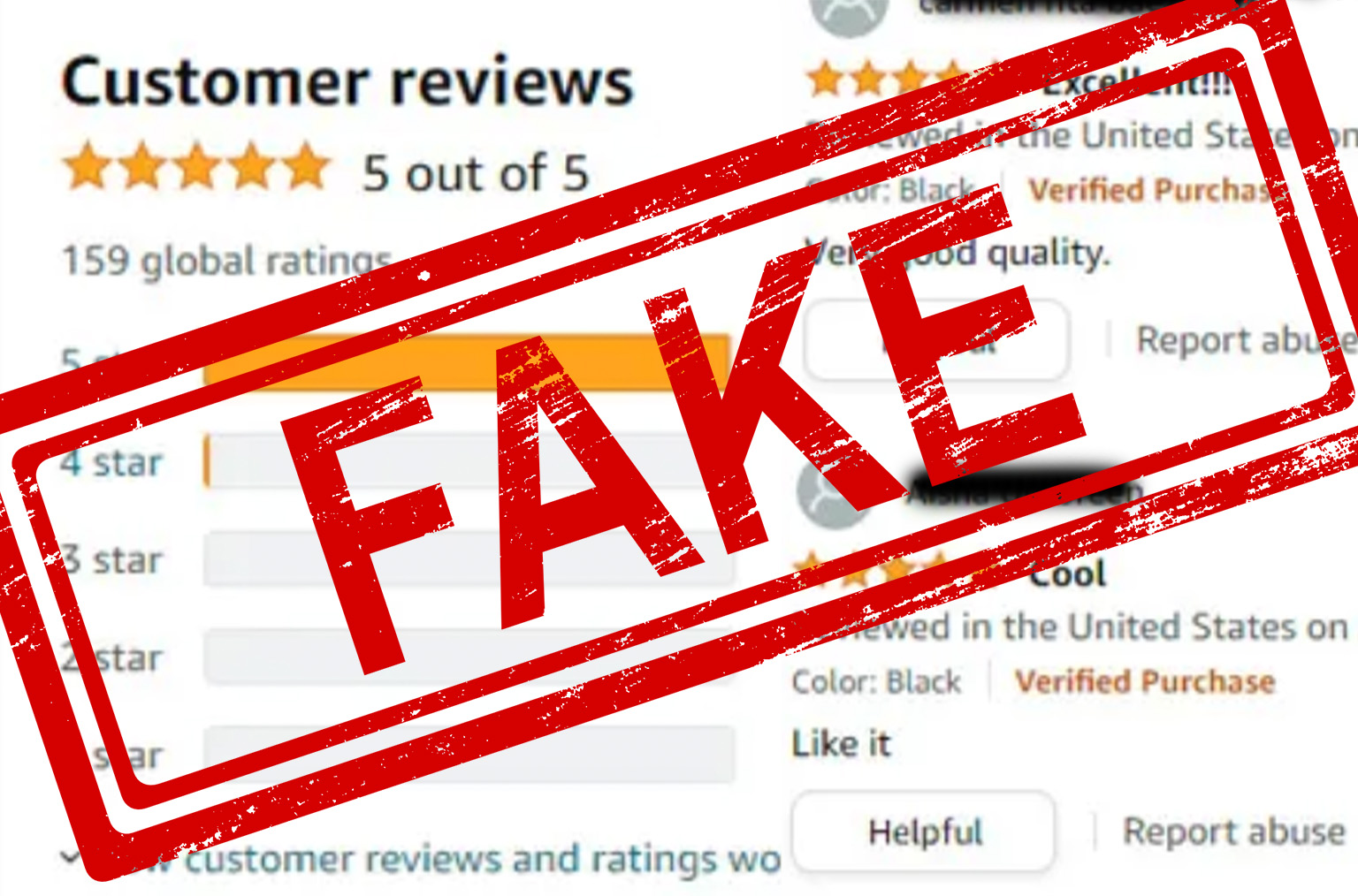When you're building a brand on Amazon, reviews are king. They can make or break your product's success, determining whether it climbs to bestseller status or languishes unnoticed. So, it's no surprise that many sellers are desperate to boost their reviews quickly. But where should we draw the line between clever marketing and outright manipulation?
In the case of the FBA Brand Builder community, it seems some advice being shared crosses into risky territory—and it's raising a lot of questions.
Amazon's Stance on Reviews
Amazon's review policy is crystal clear: incentivized reviews—whether through payments, gift cards, or reimbursements—are not allowed. Verified reviews must come from genuine customers, untainted by incentives or manipulation. And for good reason. Fake or manipulated reviews undermine trust in the marketplace and hurt honest sellers who play by the rules.
Yet, despite these rules, there’s evidence of sellers within Darren Campbell’s FBA Brand Builder program leaning heavily on practices that Amazon explicitly bans.
Encouraging Risky Behavior?
In screenshots shared from within the community, hosts like Ryan Tweed openly discuss methods to generate "verified purchase" reviews. This includes advice such as paying people directly to buy your product and leave a review or sending them an Amazon gift card to cover the cost. These tactics are designed to work around Amazon’s system, but they’re also blatant violations of its policies.
One post from Ryan reads:
Another comment states, “You can send a gift card, but don’t send it to yourself and try to use it.” It’s clear this isn’t just a casual suggestion—it’s being shared as actionable advice for sellers.
But the consequences? They’re not hypothetical. A community member, shared an email she received from Amazon:
"We have closed your Amazon.com account and canceled all open orders. We have taken these actions because you are attempting to use Amazon gift cards that are in violation of our Terms and Conditions."
For sellers relying on Amazon as their primary income stream, this isn’t just a slap on the wrist—it’s a catastrophic loss.

Why This Matters
Let’s be real: paying people to leave reviews—whether directly or through gift cards—isn’t just against Amazon's policies; it’s a dangerous game. Sure, it might deliver a quick boost to rankings, but the risks far outweigh the rewards. Accounts can be suspended or permanently banned, wiping out months or even years of hard work.
Beyond that, these practices erode trust. Customers depend on reviews to make informed decisions. Manipulating reviews doesn’t just hurt your competitors—it damages the credibility of the entire marketplace.
Is This the Best Advice for Entrepreneurs?
The FBA Brand Builder program markets itself as a way to help sellers create successful brands, but advice like this makes you wonder: is it setting them up for long-term success, or encouraging risky shortcuts?
Leaders like Darren Campbell and Ryan Tweed have a responsibility to discourage these practices, but instead, they seem normalized within the community. Sellers are being told to do "whatever it takes" to succeed, even if that means breaking Amazon’s rules.
The community member's experience should serve as a cautionary tale, but instead of discouraging risky behavior, the response was dismissive. In one instance, Darren even commented, “Please let this be a warning to you all. DO NOT BUY your own product…” While this acknowledges the risk, it still leaves room for interpretation—especially in a group where workarounds are commonly shared.
What Should Be Done?
Communities like this have a responsibility to provide ethical and sustainable advice. Paying for reviews—whether through gift cards, reimbursements, or any other method—should be actively discouraged, not casually discussed. Instead, leaders and mentors should focus on strategies that align with Amazon’s policies, like using Amazon’s Vine program or encouraging organic reviews through exceptional customer service and follow-ups.
At the end of the day, the real question is: does the FBA Brand Builder program want to be remembered as a community that genuinely helps entrepreneurs build successful brands, or one that pushes them towards practices that could destroy their businesses?
Closing Thoughts
Building a successful brand on Amazon isn’t easy. It takes time, effort, and a commitment to doing things the right way. Shortcuts like incentivized reviews might deliver a temporary boost, but they come with serious risks—not just to your account but to your reputation as a seller.
As for the FBA Brand Builder community, it’s time to take a hard look at the advice being shared and decide what kind of culture it wants to foster. Because right now, it feels more like a gamble than a guide to sustainable success.
For new sellers, here’s the takeaway: prioritize honest strategies. Build trust with your customers, and let your product speak for itself. It might take a little longer to get those glowing reviews, but the peace of mind—and long-term growth—will be well worth it.

